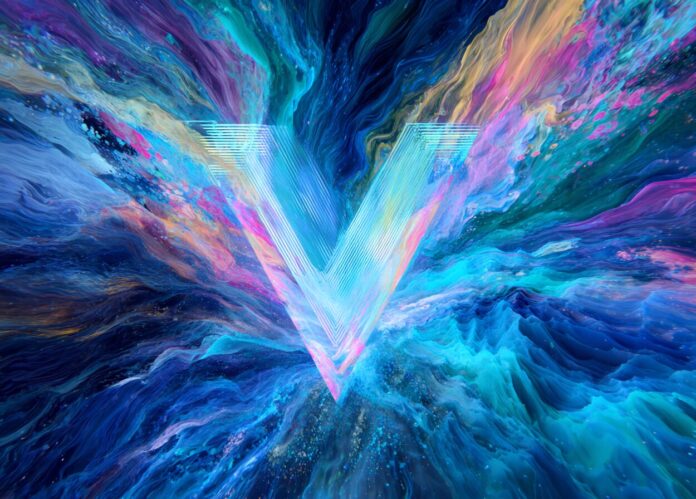Expanding the Horizons of AI-Generated Video
As the AI video generation arena rapidly evolves, both creators and technologists are witnessing fundamental changes in content production. OpenAI is preparing Sora 2 with the aim of revolutionizing the industry further, and the competition continues to heat up. Because innovation drives the next era of digital storytelling, each development not only redefines creative possibilities but also challenges established norms.
Most importantly, Sora 2’s imminent launch forces the industry to reconsider what truly matters: the integration of audio, visual precision, and narrative depth. Therefore, this battle between OpenAI’s Sora series and Google’s Veo 3 is not merely a clash of technologies, but a contest to set new benchmarks in immersive storytelling.
The Generative Video Race: A New Era of Creativity
Generative video transition from experimental novelty to an essential creative tool has been swift. Modern filmmakers, brands, and digital content creators find themselves gravitating towards tools that can turn simple text prompts into engaging, high-quality video experiences. Besides that, companies are increasingly relying on these solutions to streamline production and meet tight deadlines without sacrificing quality.
Because the industry demands faster, more versatile outputs, two powerhouses now dominate the landscape: OpenAI’s Sora and Google’s Veo 3. While Sora has earned praise for its cinematic flow and narrative continuity, Google’s Veo 3 impresses with meticulous detail and integrated audio features, as noted in detailed comparisons on HitPaw and Eden AI.
Google Veo 3: Championing Audio-Visual Excellence
Google’s Veo 3 goes beyond conventional visual generation, offering advanced audio integration that heightens the realism of each scene. Most importantly, Veo 3 does not simply deliver sharper images; it crafts immersive experiences where every visual cue is perfectly paired with synchronized sound effects and contextual ambient noises.
For instance, viewers not only see a coffee pour but also hear the subtle splash and murmurs of a busy café. This holistic approach boosts the creative potential of the platform, as TechRadar explains. Besides that, the model provides granular control over scene dynamics, enabling adjustments in lighting, camera angles, and motion that cater to both technical and creative demands.
OpenAI Sora: A Pioneer in Narrative Crafting
OpenAI’s Sora gained traction for its emphasis on cinematic storytelling and its ability to render long-form narratives that captivate audiences. The platform’s strength lies in producing sequences that build a coherent story over time, which is a key attribute for projects that require depth and emotional investment. Because the focus is on storytelling, Sora has traditionally excelled in crafting compelling scenes, as highlighted by HitPaw.
However, despite its narrative prowess, Sora has faced limitations by not integrating native audio capabilities. Consequently, when compared with Veo 3, it often falls short in providing complete sensory experiences. Therefore, the challenge for Sora 2 is clear: it must not only maintain its strength in narrative continuity but also embrace comprehensive audio functionalities.
Crucial Enhancements Needed in Sora 2
Sora 2 is under the spotlight and must address several key areas to compete effectively with Veo 3. Most importantly, incorporating native audio support with compatible speech synthesis and environmental sound integration is non-negotiable. Because users now demand a holistic experience, Sora 2 will need to produce richer, more immersive videos.
Additionally, improvements in visual fidelity are essential. By advancing its resolution capabilities and achieving photorealistic quality—potentially even matching 4K outputs—Sora 2 can close the gap with Veo 3. Furthermore, faster rendering times and intuitive scene controls will not only enhance user experience but also broaden its market appeal. As Bleeping Computer observes, faster processing coupled with improved responsiveness is crucial for staying competitive.
Comparing Features: Veo 3 vs Sora
Below is a detailed side-by-side comparison that highlights the inherent strengths of each model, as well as the areas where Sora 2 could potentially excel:
| Feature | Google Veo 3 | OpenAI Sora (Current) |
|---|---|---|
| Max Video Quality | 1080p (with potential for 4K in future iterations) | 1080p+ |
| Max Duration | Approximately 30 seconds | 60+ seconds |
| Audio Output | Yes, including native speech and sound effects | No native audio implementation |
| Scene/Camera Control | Highly granular | Moderate control with room to improve |
| Public Access | Limited to early access users | Controlled access through ChatGPT integrations |
| Output Coherence | High for short scenes | Exceptional for longer, fluid narratives |
This detailed breakdown clearly indicates that while both platforms have their respective merits, the future improvements in Sora 2 could redefine competitive dynamics in the generative video sphere.
The Future Landscape of AI Video Generation
Looking ahead, Sora 2’s development will be closely scrutinized by industry experts and creative professionals. There is significant anticipation that OpenAI will integrate advanced audio functionalities and refined scene control, ensuring the model meets the dual demand of technical excellence and creative flexibility. Therefore, the industry eagerly awaits improvements that, like a symphony, will harmonize visuals with sound.
Moreover, advancements in affordable pricing and user-friendly interfaces are expected to democratize access further. Because digital creators come from diverse backgrounds, making these tools accessible is paramount. As Eden AI elaborates, the roadmap for Sora 2 includes expanded features that cater to both professional filmmakers and casual enthusiasts.
Final Thoughts: A Bold Leap Forward
In conclusion, while Google’s Veo 3 sets a high standard in combining visual and auditory elements, Sora 2’s upcoming enhancements hold the promise of delivering a more immersive and comprehensive user experience. Most importantly, the future of text-to-video AI will depend on how well these models can translate human creativity into digital media. Because the stakes are high, both models must continuously evolve to serve the ever-changing needs of their users.
The journey ahead for AI-generated video is filled with potential, and the evolution of these models represents a paradigm shift in digital content creation. Therefore, brands, creators, and technology enthusiasts should watch this space closely as Sora 2 takes on the challenge to dazzle and redefine what is possible.



